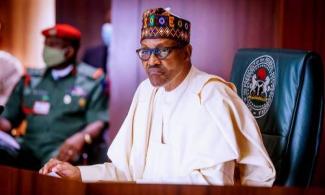
The Nigerian government has said that British and Irish businessmen it accuses of fraudulently winning an $11 billion arbitration award previously used the same playbook to net a cash settlement from Nigeria, Bloomberg reports.
The Muhammadu Buhari-led government is preparing for a trial in London early next year when it aims to prove that Process & Industrial Developments Limited (P&ID), secured a gas-supply contract and the subsequent arbitration victory through bribery.
It was learnt that the government is expanding its offensive against the firm to include claims about its shareholders’ role in another dispute with the state that was also marred by corruption allegations.
In August, Nigeria levelled fresh claims of fraud against the little-known offshore firm, P&ID which earlier won the $11 billion arbitration award against the country, ramping up the pressure ahead of one of the biggest London trials to take place next year.
The Nigerian government had sought to convince a United Kingdom (UK) High Court that the contract which has now generated additional interest with P&ID for a 20-year contract to turn Nigeria’s gas reserves into electricity, was a scam ab initio.
The lawyers representing the Nigerian government told Sir Ross Cranston, head of the court that P&ID knew from the beginning that there was no deal, noting that it was only a facade to fleece the Nigerian people.
P&ID, founded by the late Michael Quinn and Brendan Cahill, the lawyers told the court, had no intention to perform any obligation concerning the purported contract, the reason the company went about bribing Nigerian government officials at the time.
The company has denied all allegations of wrongdoing and accused the government of evading its legal obligation to compensate the British Virgin Islands-registered company, according to the report.
With interest, the award has grown from an initial $6.6 billion to the equivalent of nearly a third of Nigeria’s foreign reserves.
If the government’s case fails, Buhari’s successor, who will be elected in February 2023 may be forced back to the negotiating table with P&ID.
Nigeria alleged in its amended case filed in July that during arbitration proceedings, which ran for five years until 2017, two men who owned and worked for P&ID “obtained privileged and/or confidential documents” about the government’s entry into the 2010 gas deal, its strategy for defence and discussions about striking a settlement.
Seamus Andrew and Brendan Cahill were also receiving similar documents relating to the state’s battle with another company — IPCO (Nigeria) Limited — that was then trying to enforce a separate arbitration decision, according to a previously unreported reply that Nigeria submitted to the court in March. Although neither of them was a director or shareholder of IPCO, Nigeria alleges their companies financed IPCO’s dispute.
Cahill founded P&ID while Andrew was the company’s lawyer during the arbitration phase and acquired 75 per cent of the firm’s shares in 2017, through a Cayman Islands-registered firm Lismore Capital Ltd.
“There is a track record on the part of P&ID and the companies and individuals associated with it of obtaining such documents unlawfully for their tactical advantage,” the Nigerian government told the court.
Cahill denied that claim in a witness statement, saying IPCO committed to paying one of his firms an outstanding invoice once it settled with the NNPC. Cahill said he introduced IPCO to a “funder” for the enforcement proceedings. That financier, says Nigeria, was Lismore Capital. Cahill didn’t respond to Bloomberg’s requests for comment.
While UK judges concluded the NNPC had a “good” case that IPCO fraudulently obtained part of the award, the state-owned oil company resolved the matter by paying IPCO a settlement of tens of millions of dollars shortly before a trial was due to start in 2018, according to Cahill’s witness statement. The NNPC wouldn’t confirm the payout.
“Nigeria’s claims about the alleged involvement of Andrew and Cahill in the IPCO proceedings are wholly irrelevant,” P&ID said in September and may ask the court to strike them out.